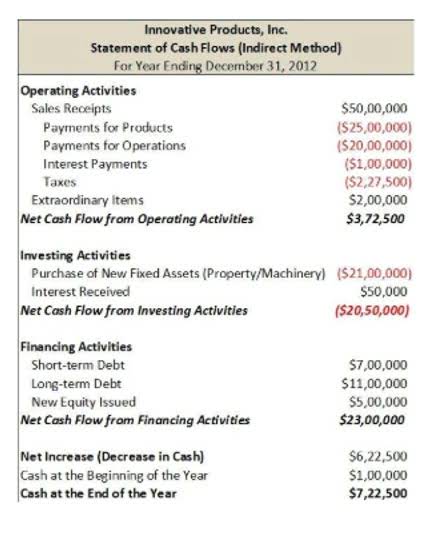2024-2025 Federal Tax Brackets & Income Rates

Non-profit organizations are typically exempt from corporate taxes if they conform to IRS criteria and local regulatory frameworks. These federal adjustments can influence the calculation of taxable income, and the applicability of certain deductions and credits, ultimately affecting your city tax liabilities. Effective tax planning is essential for significantly reducing financial strain and preventing the rush of last-minute decision-making. In the intricate landscape of New York City’s corporate taxes, mastering strategic management of tax liabilities becomes crucial. New York City offers a suite of tax credits designed to bolster economic development and job creation by incentivizing business investments and relocations. Key among these is the Investment Tax Credit (ITC), which targets companies investing in property and equipment in specific sectors, reducing tax liabilities proportionate to the investment value.
- An overpayment in tax throughout the year will result in a refund, while an underpayment may result in a bill.
- If you change your mind at any time about wishing to receive the information from us, you can send us an email message using the Contact Us page.
- REIT transfers are taxed at half of the otherwise applicable rate, if certain conditions are met.
- The capital-based tax is 0.15% of a corporation’s business capital, capped at $5 million.
- Understanding New York City’s corporate income tax is crucial for any business operating within its boundaries.
- Corporations doing business in New York City are also subject to the General Corporation Tax (GCT).
- If an entity is subject to the MTA tax, then Form CT-3-M must be filled out and filed.
Business income base and capital base tax rates (Article 9-A)

New York State, in an effort to modernize its tax code, initiated a series of substantial changes in its corporate tax framework in 2015. While the C corporations bear the burden of the corporation franchise tax, the new york s corporations remain exempt from the Business Corporate Tax. As per the ranking for corporate tax rates, New York State boasts the 16th highest corporate tax rate in the country, contributing to the collection of over $8 billion in corporation taxes in 2021 alone. This rate applies to all taxable income for C corporations, regardless of income level or industry. Entrepreneurs should note that this rate does not apply to S corporations or other pass-through entities, which are generally taxed at the shareholder or member level using individual rates. Tax brackets divide portions of your income into different taxable windows based on filing status and determine which tax rates you end up paying.

Article
- As of this writing, the federal tax rate for C corporations is set at 21%, maintaining the rate established by the Tax Cuts and Jobs Act of 2017.
- However, as 2025 approaches, ongoing legislative debates may impact how these deductions interplay with other credits and deductions.
- However, an NOL generated in 2015 or later cannot be carried back to a tax year commencing prior to January 1, 2015.
- It ensures completeness by covering essential aspects of NYC’s corporate tax structure, including rates, deductions, incentives, and penalties.
- A closer analysis reveals that less than 1% of corporate taxpayers shoulder nearly 74% of the total corporate income taxes.
Two-thirds of Article 9-A taxpayers use a calendar year, reporting almost 75% of the total Article 9-A liability. If your corporation is taxable under the GCT, you will need to file a GCT tax return for all years beginning on or after January 1, 2015. Understanding NYC corp tax is imperative for any incorporated business located in the state of New York. Depending on the type of business you conduct, this will influence the type of return you file. Be taking a proactive approach, you will ensure that your New York City corporate taxes are filed on time, reducing your risk of costly fees or penalties.
Entities Subject to the Tax

While more than two-thirds of Article 9-A filers pay on the fixed dollar minimum base, more than 90% of the tax comes from the income base. Corporations A, B, C, and D are required to file a combined return for the period January 1, 2015 through December 31, 2015. The business activities of Corporation B are required to be included in that combined return only for the period January 1, 2015 through June 19, 2015. Corporation B is required to file a separate Remote Bookkeeping Business Corporation Tax return (Form NYC-2) for the short period June 20, 2015 through December 31, 2015. Interest income from loans not secured by real property (and not QFI, or QFI with no election to use fixed percentage method) is apportioned to New York City if the borrower is located in New York City. An individual is considered located in New York City if the individual’s billing address is in New York City.
All commercial tenants with annual or annualized rents less than $250,000 are exempt, although a return may need to be filed. Effective on Jul. 1, 2018, a tax credit eliminates CRT for base rents between $250,000 and $500,000, but only for businesses with no more than $5 million of total (not net) income. A partial credit is available on a sliding scale, up to $10 million in total income and $550,000 in annual base rent. NYC imposes UBT at a rate of 4% on any unincorporated business—that nyc tax rate is, any trade or business engaged in or conducted by an individual (sole proprietorship) or unincorporated entity, including a partnership or LLC.

Do I have to pay New York state income tax?
Article 9-A filers are subject to the highest of three bases—business income base, business capital base, or the fixed dollar minimum tax based on New York receipts. The 7.25% tax rate on the business income base for taxpayers with a business income base of more than $5 million and the .1875% tax rate on the capital base have been extended through tax years beginning before January 1, 2027. In conclusion, understanding the differences between NYC Corporate Tax and NYC Personal Income Tax on W2 is crucial for businesses operating in New York City. Each tax structure has its own implications, and the decision on how to manage income distribution should be made carefully. By CARES Act considering factors such as tax rates, cash flow needs and long-term goals, businesses can optimize their tax liabilities and ensure they are in compliance with New York City’s tax regulations.

NYC Corp Tax: Everything You Need to Know
Such provisions underscore the city’s recognition of corporate structures and fiscal interdependencies. This tax is calculated based on your federal taxable income, though it’s important to note that some federal deductions are not permissible at the city level. Beyond the standard corporate tax, businesses in the New York City metropolitan area should be aware of the Metropolitan Commuter Transportation Mobility Tax (MCTMT). This tax applies to businesses with employees who work in the New York City metro area. The MCTMT is based on payroll size and varies depending on the exact location of your business operations. It’s an essential tax consideration for businesses operating within this region.
